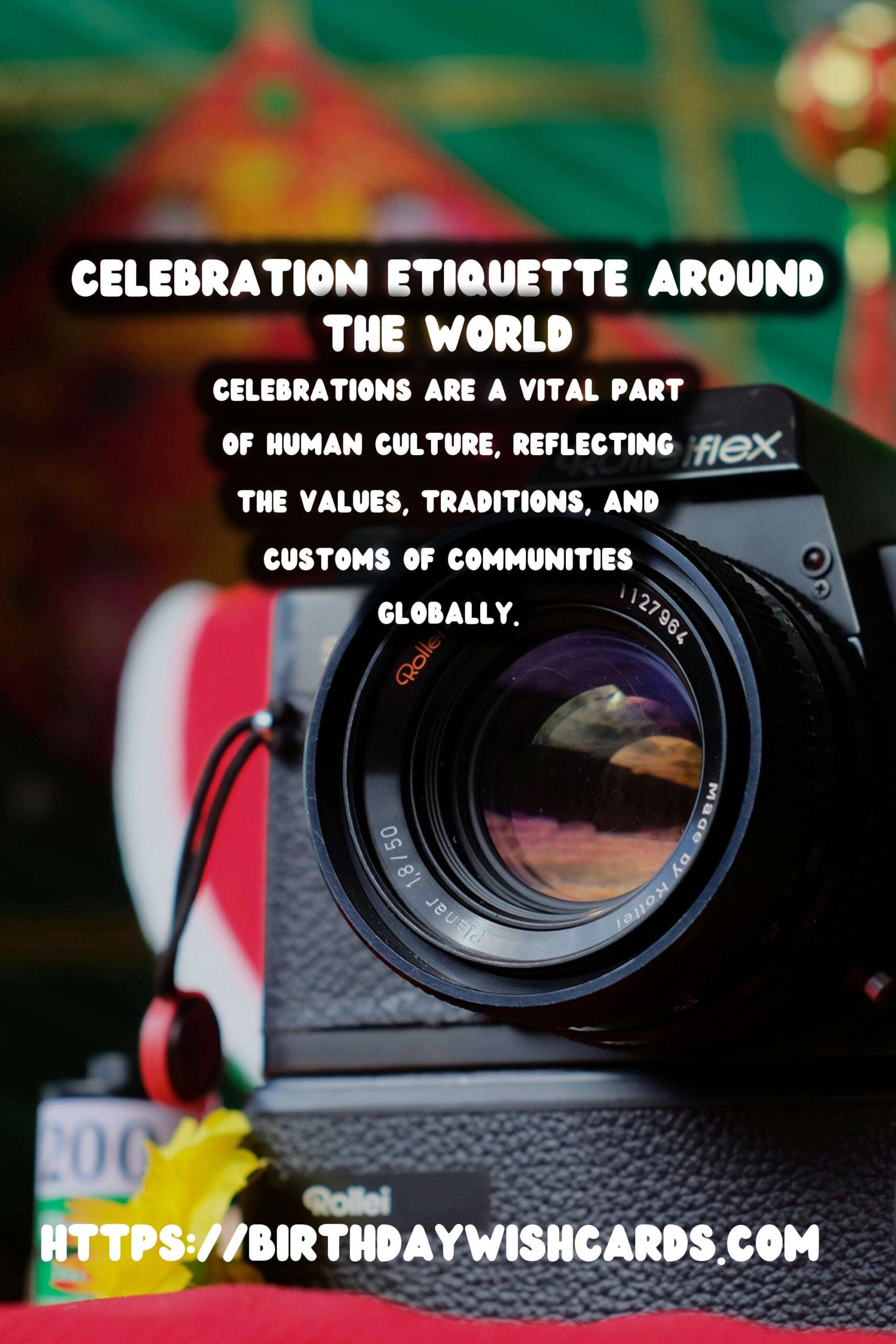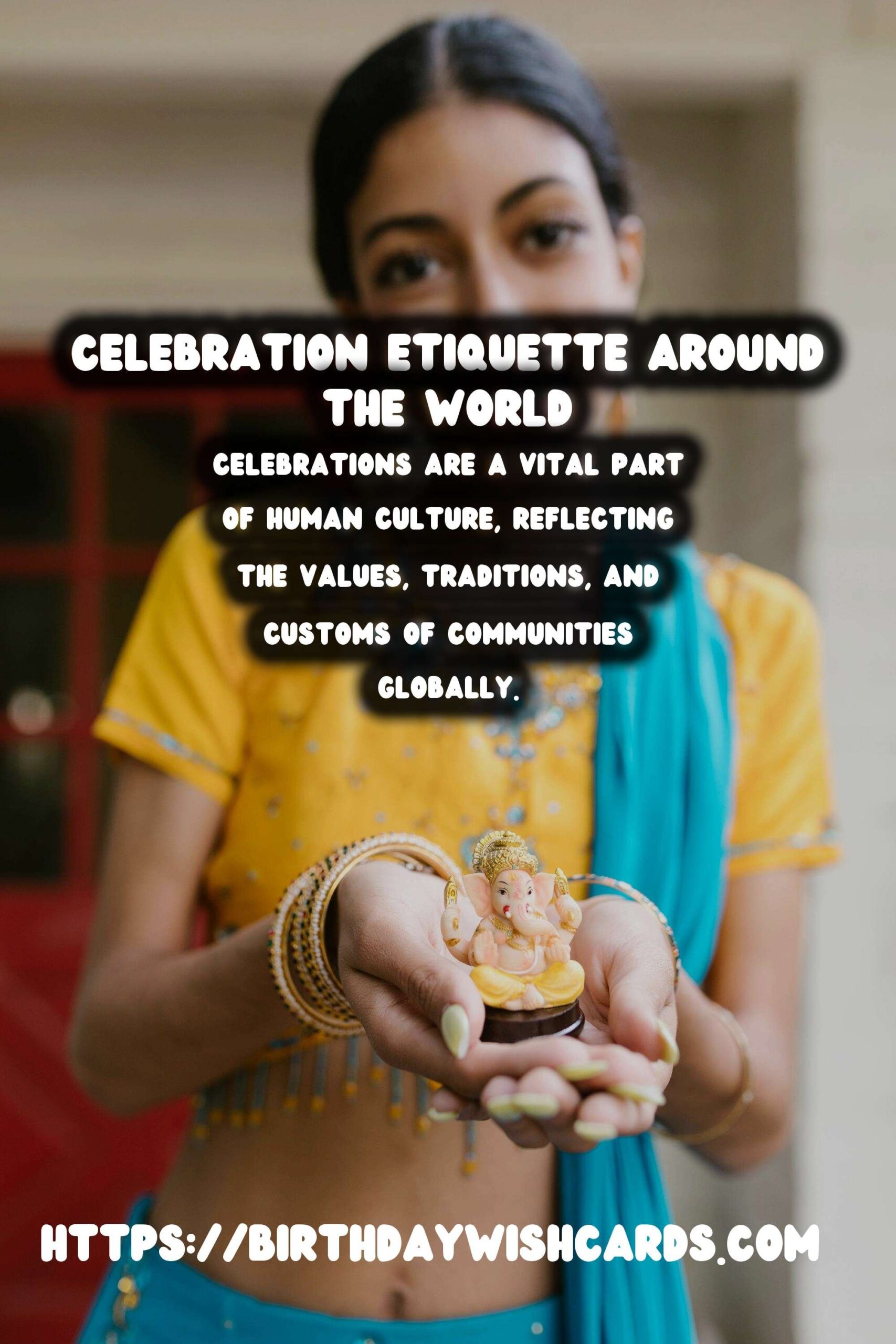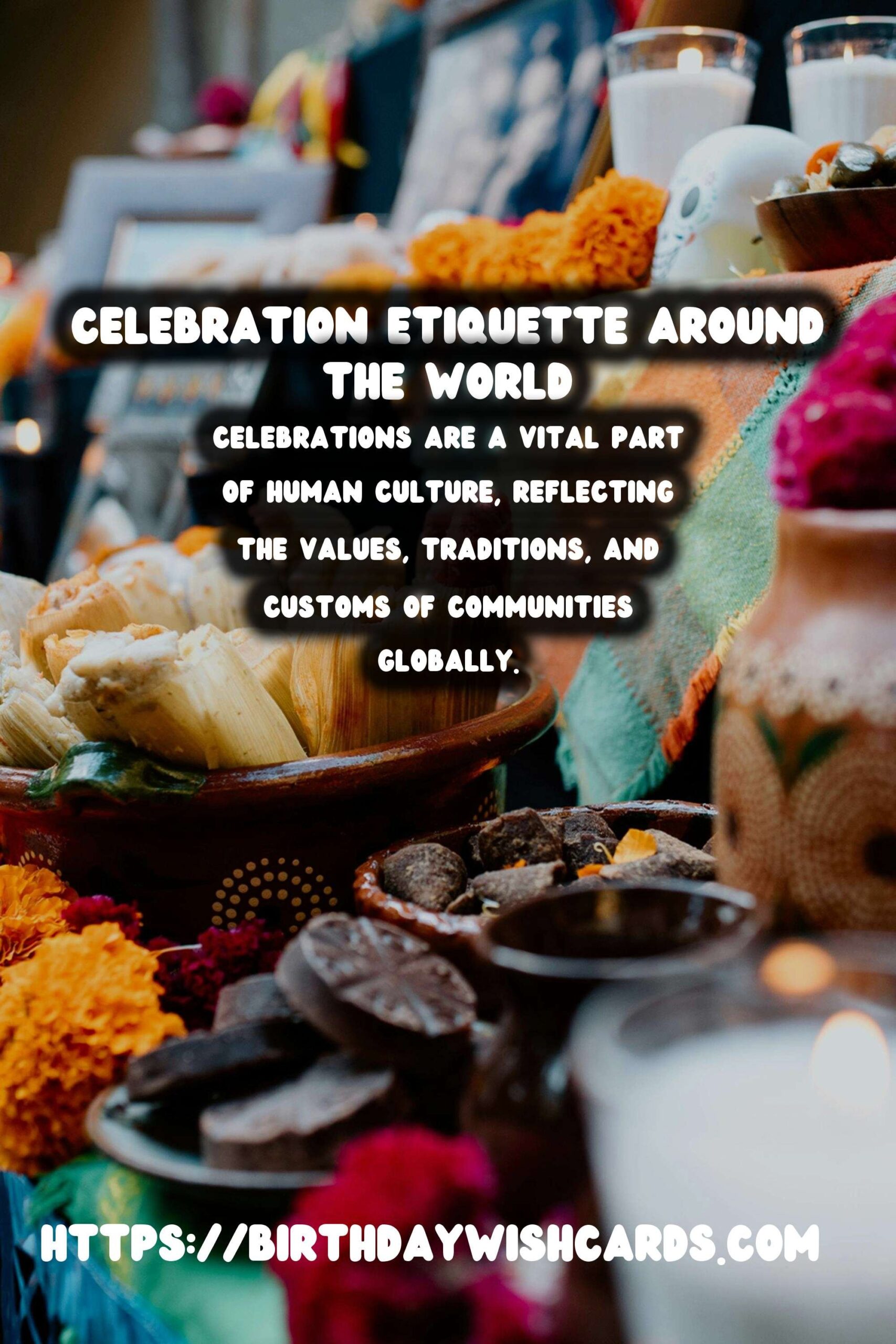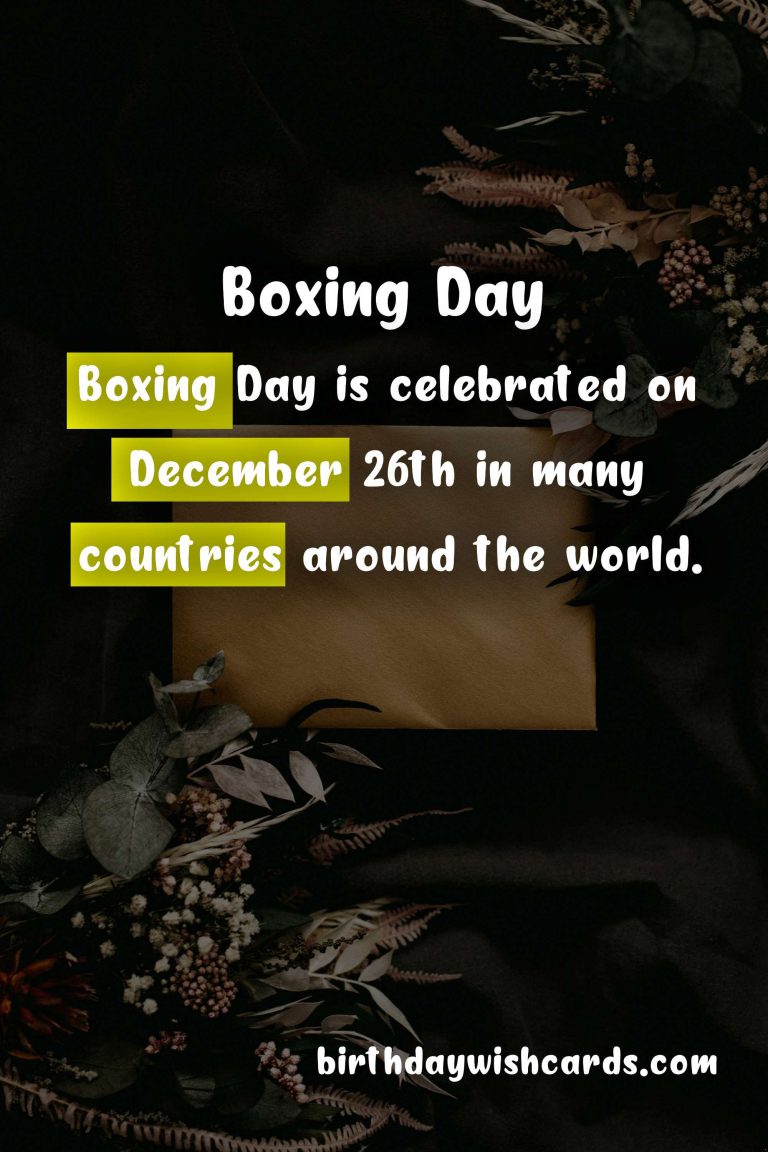Top Ways to Create Celebration Etiquette Around the World
Top Ways to Create Celebration Etiquette Around the World
Celebrations are a vital part of human culture, reflecting the values, traditions, and customs of communities globally. Understanding and respecting celebration etiquette around the world can enhance our experiences and foster deeper connections with people from different backgrounds.
1. Understanding Cultural Sensitivity
Cultural sensitivity is the cornerstone of celebration etiquette. Acknowledge that every culture has its unique practices and meanings associated with celebrations.
Before participating in a celebration from another culture, take some time to research its background, significance, and customs. This preparation shows respect and a willingness to embrace new experiences.
2. Respecting Dress Codes
Many celebrations involve specific dress codes that can signify respect for the occasion. Whether it’s wearing traditional garments during a wedding or dressing modestly during religious ceremonies, adhering to these dress codes is essential.
In Western cultures, formal events may require elegant dresses or suits, while in Eastern cultures, traditional attire may be expected. Asking the hosts about proper attire can avoid any misunderstandings.
3. Gift-Giving Etiquette
Gift-giving can have significant cultural implications. In some cultures, bringing a gift to a celebration is customary, while in others, it may not be expected.
When giving gifts, consider the cultural significance behind them. In Japan, for example, it’s important to present gifts beautifully wrapped, while in many Middle Eastern cultures, gifts may often be declined initially before being accepted.
4. Timing and Punctuality
In some cultures, punctuality is crucial, while in others, being late is more acceptable. Understanding how time is perceived in different cultures can help you navigate celebrations more smoothly.
In countries like Germany, arriving on time is seen as a sign of respect; conversely, in places like Mexico, being a bit late is often not frowned upon.
5. Proper Greeting and Interaction
Greetings can vary significantly from culture to culture. In some societies, a firm handshake is standard, while in others, bowing or cheek kissing may be the norm.
It’s also important to be aware of personal space. Cultures like the United States prefer a more distant interaction, while cultures in Latin America may engage in closer physical proximity.
6. Eating Etiquette
Food plays a central role in many celebrations. Understanding eating etiquette can enhance the experience and show appreciation for the host’s culture.
In countries like China, it is customary to wait for the host to start the meal before digging in, while in some Middle Eastern cultures, eating with the right hand is a must. Always be mindful of dietary restrictions and preferences.
7. Engaging in Traditional Activities
Celebrations often feature traditional activities, such as dances, games, or rituals. Participating in these activities can be a fun way to immerse yourself in the culture.
However, approach these traditions with respect and willingness to learn rather than merely for entertainment. It shows appreciation for the culture and can lead to a more fulfilling experience.
8. Understanding the Role of Religion
Many celebrations are rooted in religious beliefs. Understanding the religious significance of a celebration is important when participating.
Example: Festivals like Diwali in India and Christmas in Western countries have deep religious meanings. Be respectful during these celebrations by refraining from inappropriate behavior or comments.
9. Following Local Customs
Every region may have local customs that enhance celebrations. For instance, in some cultures, it is customary to remove shoes before entering a home, while in others, specific toasts may need to be made during a meal.
Familiarize yourself with these local practices to show respect and avoid offending hosts or fellow guests.
10. Expressing Gratitude
Expressing gratitude after attending a celebration is essential. Sending thank-you notes or messages to the host can provide closure and strengthen your relationship.
Ensure your message aligns with their cultural norms. In some cultures, a verbal thank-you is sufficient, while in others, a written note might be expected.
Conclusion
Celebration etiquette varies widely across cultures, reflecting the richness and diversity of human experience. By understanding and respecting these customs, we can foster connections that transcend borders and enhance our own cultural knowledge.
Always approach celebrations with an open mind and a willingness to learn. This attitude will enrich your life and those around you, creating shared joy and unforgettable memories.
Celebrations are a vital part of human culture, reflecting the values, traditions, and customs of communities globally.
Understanding and respecting celebration etiquette around the world can enhance our experiences and foster deeper connections with people from different backgrounds.










#celebration #culturaletiquette






